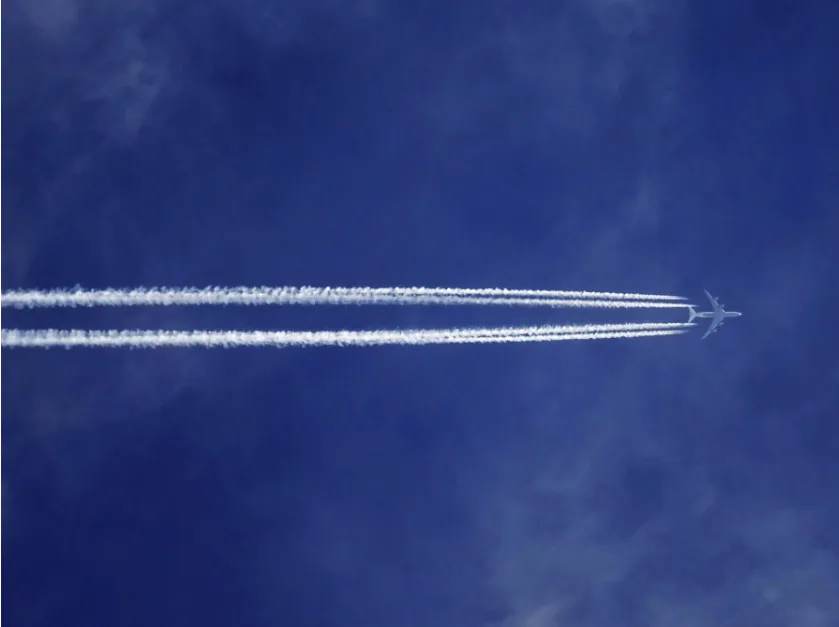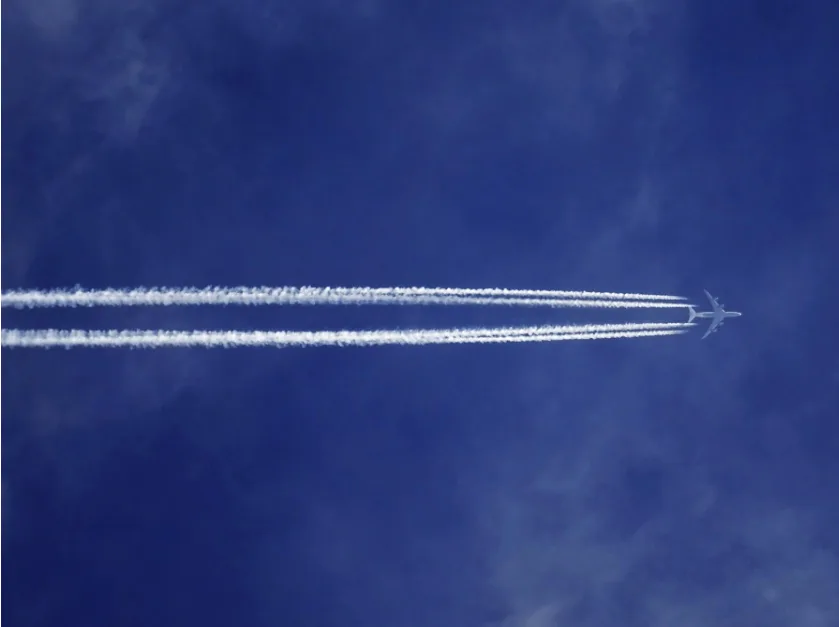
'Flight shaming' a growing trend
Greenwood, who grew up enthralled by the possibilities offered by plane travel, is part of a growing group of environmental activists in Northern Europe who are shunning flights as concerns about global climate change increase.
"It's a tough pill to swallow, but when you look at the issues around climate change, then the sacrifice all of a sudden becomes small," Greenwood said.
A Swedish-born anti-flying movement is spreading to other European countries, creating a whole new vocabulary, from "flygskam" which translates as "flight shame" to "tågskryt," or "train brag."
Summer revealed! Visit our Complete Guide to Summer 2019 for an in depth look at the Summer Forecast, tips to plan for it and much more
A number of famous Swedes have stopped flying, including opera singer Malena Ernman, the mother of teenage activist Greta Thunberg who has thrust climate change into the spotlight.
"Flygskam" was a major topic at a three-day airline summit in Seoul this weekend, with global industry leaders launching a counter-offensive.
"Unchallenged, this sentiment will grow and spread," Alexandre de Juniac, head of the International Air Transport Association (IATA) told some 150 CEOs.
The industry says it is shrinking its carbon footprint and its sustainability plan is among the most ambitious and globally focused of any industry.
"Come on, stop calling us polluters," de Juniac said at a news conference after detailing the global initiative.
The IATA said the CO2 emission for each CEO's flight to Seoul was half the amount of a 1990 flight, largely thanks to more fuel-efficient aircraft.

Courtesy: Pexels.
STRUGGLE
Commercial flying accounts for about 2.5% of global carbon emissions today but without concrete steps, that number will rise as global air travel increases.
The aviation industry has set out a four-pronged plan to achieve carbon-neutral growth from 2020 and halve net emissions from 2005 levels by 2050.
But airline leaders acknowledge they have struggled to articulate their plans in a way that resonates with the public.
When CNN anchor Richard Quest asked a room full of aviation executives whether they had used an often available booking option to offset emissions from their own flights to the South Korean capital, only a handful raised their hands.
The industry's plan rests on a mix of alternative fuel, improved operations such as direct flight paths and new planes or other technology.
But a widely publicized March study funded by investors managing $13 trillion said airlines were doing too little.
"If we as an industry can provide better, more concrete answers...people will start to feel more comfortable that airlines are serious about this commitment," JetBlue CEO Robin Hayes said in an interview.
OFFSET SCHEME
Questions remain over how airlines will slow, steady and finally reduce harmful emissions.
Use of sustainable-fuel would have the single largest impact, reducing emissions from each flight by around 80%, according to the IATA. The problem is that it is in short supply.
"The reality today is there's just not enough and it's too expensive," KLM CEO Pieter Elbers told Reuters. KLM last week announced a deal to develop and buy biofuels from Europe's first sustainable aviation fuel plant, due to open in 2022.
Still, the IATA targets 2 percent of total fuel supply from sustainable sources by 2025 and then expects a steady increase.
In Europe, eliminating dozens of national airspaces borders could reduce fuel consumption by around 6 percent, but lobbying for a Single European Sky has been bogged down for years.
Airlines say small steps like single-engine taxiing and the use of lighter materials are cutting around 1-2% of emissions each year.
MIND THE GAP
In the absence of a quick and substantial reduction its carbon footprint, the industry has committed to a carbon-offset program.
The global Carbon Offsetting and Reduction Scheme for International Aviation (CORSIA) allows airlines to purchase pollution credits from environmental projects.
It's unclear what will count as an "offset" and critics say such schemes hide how much effort is being made by industry and how much is being imported and at what price.
"The risk is that the price airlines are effectively paying for carbon will not be politically acceptable in 5 or 10 years," a senior aviation executive said, asking not to be named.
European Union Transport Commissioner Violeta Bulc told Reuters she favors reviewing available green technology every five years "and then seeing if we can reach even further."
For now, trains are benefiting from the anti-flight movement, although airline bosses in Seoul said that option barely exists in their busiest new markets such as Indonesia's archipelago.
In Stockholm, Susanna Elfors says membership on her Facebook group Tagsemester, or "Train Holiday," has spiked to some 90,000 members from around 3,000 around the end of 2017.
"Before, it was rather taboo" to discuss train travel due to climate concerns, Elfors said. "Now it's possible to talk about this on a lunch break ... and everybody understands."
(Reporting by Tracy Rucinski in Seoul, Anna Ringstrom in Stockholm and Matthew Green in London; Additional reporting by Jamie Freed and Heekyong Yang in Seoul and Allison Lampert in Montreal; Writing by Tracy Rucinski, Editing by Tim Hepher and Kirsten Donovan)










